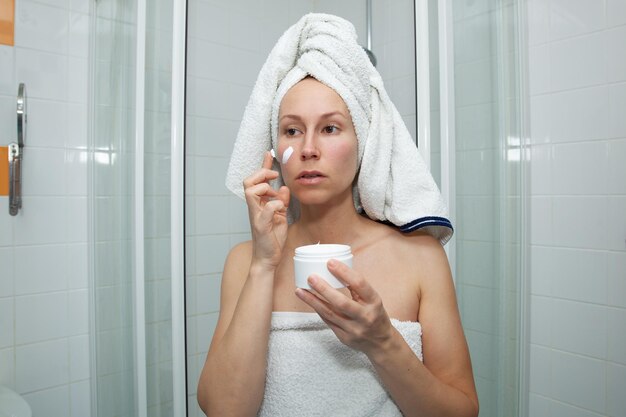Transform Your Skin: Effective Ways to Manage Rosacea
Rosacea can feel like a stubborn intruder—uninvited and persistent. Appearing as facial redness and sometimes small, red, pus-filled bumps, this chronic skin condition can cause both physical discomfort and emotional distress. While there's no cure, understanding rosacea and how to manage it effectively can help bring significant relief. Let's embark on a journey to explore how you can transform your skin health and reclaim your natural glow.
Understanding Rosacea
What Is Rosacea?
Rosacea is a chronic skin condition that primarily affects the face. It often begins as a tendency to blush or flush more easily than others and can evolve into persistent redness, visible blood vessels, and, in some cases, acne-like breakouts. Though its exact cause remains elusive, a combination of genetic, environmental, and vascular factors is believed to play a role.
Symptoms to Recognize
Rosacea symptoms can vary among individuals but typically include:
- Facial Redness: Persistent redness, often resembling a sunburn, that can spread beyond the face.
- Bumps and Pimples: Small, red, solid bumps or pus-filled pimples appearing on the face.
- Visible Blood Vessels: Small blood vessels become visible on the skin.
- Eye Problems: Scratching, dryness, and irritation, known as ocular rosacea.
- Thickened Skin: Over time, the skin can thicken, especially around the nose.
Effective Lifestyle Adjustments
Identify and Avoid Triggers
Managing rosacea begins with understanding and reducing exposure to known triggers. Common triggers include:
- Sun Exposure: Use a broad-spectrum sunscreen daily to protect your skin.
- Stress: Employ stress management techniques like meditation or yoga.
- Hot Weather: Stay indoors on very hot days and use cooling techniques.
- Hot Drinks and Spicy Foods: Opt for cooler alternatives.
- Alcohol: Moderate alcohol consumption, especially red wine.
Skin-Care Routine Tailored for Rosacea
Develop a gentle skincare routine focused on soothing and protecting your skin.
- Gentle Cleansers: Use mild, fragrance-free cleansers to avoid irritation.
- Moisturizers: Apply hypoallergenic, non-comedogenic moisturizers to maintain the skin barrier.
- Avoid Scrubbing: Be gentle when applying products, avoiding scrubbing or exfoliating brushes.
- Makeup Choices: Use cosmetics labeled for sensitive skin; green-tinted products can help neutralize redness.
Dietary Considerations
Anti-Inflammatory Foods
While direct dietary links are not solidified, many find relief through foods that help with inflammation:
- Fruits and Vegetables: Rich in antioxidants, they combat skin inflammation.
- Omega-3 Fatty Acids: Found in fish, flaxseeds, and walnuts, they can reduce inflammation.
- Whole Grains: Opt for whole grains over refined carbohydrates to maintain stable blood sugar levels, which may correlate with less skin inflammation.
Hydration and Supplements
Staying hydrated is crucial for overall skin health. Additionally, some supplements like zinc and niacinamide could be beneficial, though it's important to consult a healthcare provider before adding any supplement to your regimen.
Emotional and Mental Well-Being
Dealing with rosacea can take a toll on mental health, affecting self-esteem and confidence. Here are ways to boost your well-being:
- Support Groups: Sharing experiences in support groups can offer emotional comfort.
- Therapy: Consider speaking with a therapist who can provide strategies to manage stress and anxiety.
- Positive Self-Image: Focus on non-appearance-based attributes to build confidence.
Consulting Healthcare Professionals
Dermatologist Visits
Regular consultations with a dermatologist can provide personalized strategies to manage rosacea. They can offer treatments such as:
- Prescription Topical or Oral Medications: To reduce inflammation and redness.
- Laser Therapy: To address visible blood vessels.
- Light Therapy: For some symptoms of rosacea.
Personalized Treatment Plans
Each rosacea case is unique, and what works for one might not work for another. Tailored treatment plans, developed with your dermatologist, consider personal symptoms, severity, and lifestyle.
Innovating Skin Confidence
It’s empowering to know that although rosacea is a chronic condition, steps can be taken to manage it effectively. Through lifestyle adjustments, tailored skincare, dietary considerations, and professional consultations, you can tackle rosacea head-on.
Key Takeaways
- Identify and avoid personal triggers for flare-ups.
- Adopt a gentle skincare routine that's kind to your skin.
- Consider dietary changes to reduce inflammation.
- Seek emotional support to address the mental impacts.
- Consult with professionals for personalized medical advice.
Embarking on a journey to manage rosacea is a step toward healthier skin and improved well-being. Take charge today, empower yourself with knowledge, and embrace your skin with confidence.
🔑 Quick Reference Summary
- 🌞 Sun Protection: Daily broad-spectrum SPF is essential.
- 🧴 Gentle Skincare: Use mild products; avoid irritants.
- 😌 Manage Stress: Incorporate relaxation techniques.
- 🥗 Anti-Inflammatory Diet: Prioritize fruits, veggies, and omega-3s.
- 💬 Seek Support: Engage in community groups or therapy.
With these insights, you're equipped to fight rosacea effectively and radiate confidence from the inside out!

